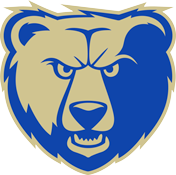Concussion Education
Concussion training is a mandatory requirement
Concussion training is a mandatory requirement from the State of Washington, the NJFL and TBJFC. Under no circumstances is any player allowed to participate on any NJFL Junior Football team until the player and their parent completes the annual concussion training and certifies their completion.
The 2009 Washington State Legislature passed "The Lystedt Law" HB 1824. This law requires that non-profit youth athletic associations, all COACHES, PARENTS and PLAYERS be educated as to the nature and risk of concussion and head injuries including the continuation of play after a concussion or head injury. This educational process shall include instruction on the signs and symptoms of concussions/brain injury and must be completed annually before any player can participate in any youth contact sport. Additionally, Youth Football Programs will face serious consequences if not 100% compliant.
To facilitate this process, we have integrated the concussion training as part of our online registration process.
______________________________________________________________________________
HEADS UP: CONCUSSION IN YOUTH SPORTS... A Fact Sheet for Parents and Players
WHAT IS A CONCUSSION?
A concussion is an injury that changes how the cells in the brain normally work. A concussion is caused by a blow to the head or body that causes the brain to move rapidly inside the skull. Even a "ding," also referred to as "getting your bell rung," or what seems to be a mild bump or blow to the head can be serious. Concussions can also result from a fall or from players colliding with each other or with obstacles, such as a goalpost. You can't see a concussion. Signs and symptoms of concussion can show up right after the injury or may not appear or be noticed until days or weeks after the injury. If your child reports any symptoms of concussion, or if you notice the symptoms yourself, seek medical attention right away.
WHAT ARE THE SIGNS AND SYMPTOMS OF A CONCUSSION?
If your child has experienced a bump or blow to the head during a game or practice, look for any of the following signs and symptoms of a concussion:
Signs Observed by Players or Guardians
- Appears dazed or stunned
- Is confused about assignment or position
- Forgets an instruction
- Is unsure of game, score, or opponent
- Moves clumsily
- Answers questions slowly
- Loses consciousness (even briefly)
- Shows behavior or personality changes
- Can't recall events prior to hit or fall
- Can't recall events after hit or fall
Symptoms Reported by Athlete
- Headache or "pressure" in head
- Nausea or vomiting
- Balance problems or dizziness
- Double or blurry vision
- Sensitivity to light
- Sensitivity to noise
- Feeling sluggish, hazy, foggy, or groggy
- Concentration or memory problems
- Confusion
- Does not "feel right"
How Can You Help Prevent A Concussion?
Every sport is different, but there are steps you can take to protect yourselves from concussion.
- Ensure that you follow your coach's rules for safety and the rules of the sport.
- Practice good sportsmanship at all times.
- Always wear the right protective equipment you are issued (such as helmets, padding, and eye and mouth guards). Protective equipment should fit properly, be well maintained, and be worn consistently and correctly. (Note: The helmet, while it helps, does not itself prevent concussions or other head injuries. Proper fundamentals, safe play, cannot be overemphasized.)
- Learn the signs and symptoms of a concussion.
WHAT SHOULD YOU DO IF YOU THINK YOUR CHILD HAS A CONCUSSION?
- Seek medical attention right away. A health care professional will be able to decide how serious the concussion is and when it is safe for your child to return to sports.
- Keep your child out of play. Concussions take time to heal. Do not return your child to play until a health care professional says it's OK. Children who return to play too soon-while the brain is still healing-risk a greater chance of having a second concussion. Second or later concussions can be very serious. They can cause permanent brain damage, affecting your child for a lifetime.
- Tell your Coach about any recent concussion. Coaches should know if your child had a recent concussion in ANY sport. Your coach may not know about a concussion your child received in another sport or activity unless you tell the coach.
